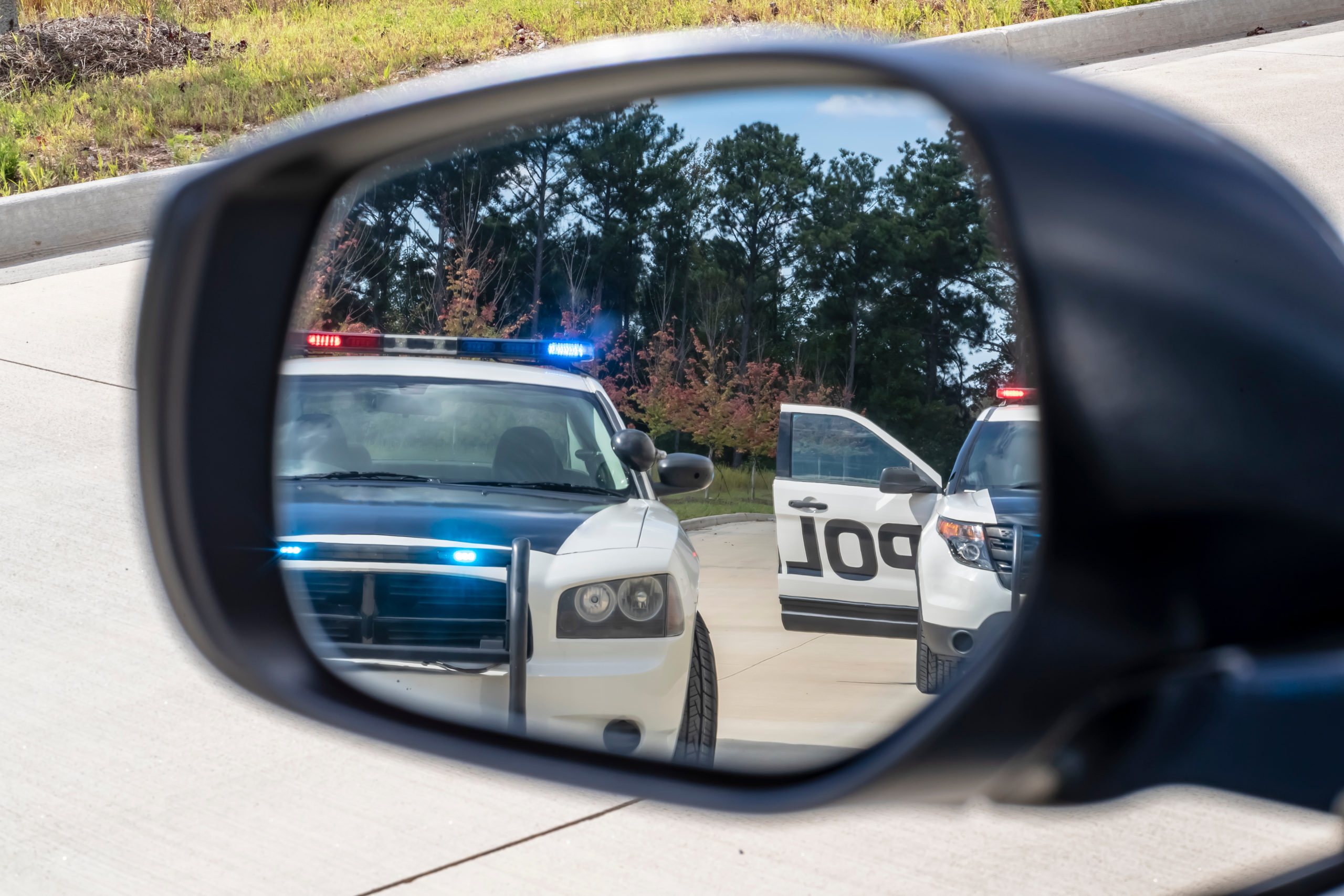- Home
- Why Choose Us
- Attorney Profiles
- Criminal Defense
- Proudly Serving
- Client Testimonials
- Client Referral
- Mental Health Diversion Program
- Criminal Defense FAQ
- News
- Contact Us
- Make A Payment
Call for a complimentary consultation:
(805) 208-1866
Knowing that I work as a criminal defense attorney, many people ask me how I feel about law enforcement, or how I feel about recent national news. As a former Deputy District Attorney with the County of Ventura, I had the exceptional opportunity to work side by side with many of our sworn protectors and have a unique appreciation for what they do on a daily basis to keep us safe. While I'm happy to give you my opinion, I think the more practical response is to give you some pointers on what you can do if you have an encounter with law enforcement. Every case is different, but these are some of the pointers that I give clients when they call. Feel free to pass these along to your friends:
Do Not Appear Threatening
Believe it or not, police officers live in a great deal of angst and fear. Statistically, one of the most dangerous things that they can do is pull somebody over. They are in fear that you might be violent, you might do something stupid like back over them, that they might be hit by oncoming traffic, or simply miss an important clue and leave the public in danger. You have no idea if the last guy they pulled over assaulted them or if they just witnessed a dead body from a car accident. They are constantly on edge and living in a world that we just can't understand.
When you are being approached by a law enforcement officer, you need to remember that they are looking for any signs of danger. If you are in the car, turn the radio off, hang up the phone, roll down both windows, and put your hands on the wheel. If you are not in the car, keep your hands empty and visible, and out of your pockets. Quick movements can be viewed as threatening, and anything in your hands can be seen as a weapon. Be still and do not say anything until you are asked.
Pass the "Attitude Test"
It's ALL about your attitude. All encounters with law enforcement end dramatically better if people are respectful and friendly. The first thing to remember is that underneath their working persona there is a person with real emotions. Go out of your way to be courteous, complimentary, cooperative, and calm. The rules of respect apply here: address the officer as "sir" or "ma'am", don't ever interrupt them, and keep your voice at a speaking level. Every officer I have ever spoken to has told me that you get back what you give. If you are angry, you are likely to get an angry response. If you are disrespectful, you are likely to get that response. If you are nice and respectful, you are much more likely to have a better day than you would have otherwise.
I have one client (this guy gets pulled over a LOT) that swears you should always pay them a compliment. Cops almost never get compliments. (He says that in some circumstances this has immediately changed the tone of the conversation and avoided him the problem entirely). You can say something like, "I just want to say thank you for everything you do out here. My family and I really appreciate the great job." You're not "kissing up" to them. Just be sincere and it lets them know that you are a friend to the police force and a grateful citizen.
When directly addressing the situation at hand, it is fine to disagree with the officers opinion, but ONLY if you can state your case respectfully. A good way to start is by asking permission: "I hear what you are saying, and I totally respect it. I would like to respectfully disagree with you and shed some light on the matter from a different perspective. Is that OK?" Most officers will actually open up and listen to you if you interject before they take any action, but only if you pass the attitude test. They are actually trained to be expert listeners. So try to convince them that you deserve a "pass", but be very careful what you say - it can and will be used against you. And remember, they do not "work for you", and your taxes don't "pay their salary".
If you can't be respectful:
Shhhhhhh!
Sometimes, we just can't control our own emotions. I've found myself pulled over in the middle of a bad day, and I haven't followed my own advice on the subject. It certainly didn't make things any better for me to be angry and argue with the police. When you find that you are just too rattled, SHHHHHHHH! It's best to only answer their direct questions, and do it as briefly as possible. "Do you know why I pulled you over?" The answer is NO. Simply NO. You aren't required to guess why they stopped you. See if you can finish the encounter with little to nothing being said. I'd always rather you said nothing than talked to them with a disrespectful attitude. Then at least you haven't made the officer angry, and you can both go about your day.
If you are in a more serious situation and you need to assert your right to remain silent and not answer questions, a recent case (People v. Tom 2014) has suggested that you need to say, "I'm asserting my 5th Amendment right to remain silent." This case is still up in the air, but for now, it's the law in California. A better response is to say, "I'm not comfortable answering questions without my attorney present." That exercise of your 6th Amendment right to counsel requires all questioning to cease.
I've also had clients who decided to talk, but have just said too much. Listen to the question, and only answer the question you are asked. For example, you are asked, "Do you have any weapons in the vehicle?" At this point the officer has no probable cause to search your vehicle. They might be seeking probable cause based upon your response. You might respond, "The only thing that I have is a knife in the fishing tackle box in my trunk." You have now just given the officer authority to ask you to open the trunk, show him the knife, and allow him to observe anything else that may be in the trunk. You may have a baseball bat left in the trunk from a little league game that you coached. Now there is suspicion that this too may be a weapon. In your heart, you know that the knife in your tackle box is for fishing, and is not a weapon. It would have been better to just answer, "No. There are no weapons in my car." If it ever came up later, it would be easy to justify by saying that you didn't consider it a weapon, but rather a tool. In reality, you most likely would have avoided the conversation entirely.
Follow Directions
If an officer tells you to "freeze and put your hands up", you should do exactly that. If they tell you to "get out of the car", you should do it. NEVER argue. You will not win. If they write you a ticket, arrest you, accuse you of a crime, or just question you harshly, please remember that there is nothing you can do about it at the time. Getting angry and arguing and refusing to comply will NOT make it better. It is the reason why there is a due process under the law. Your job in that situation is to do what they say and comply with their demands. It's MY job on Monday to morning to help you get out of it.
If you resist or do not comply with their demands, you can be charged with an additional count of Penal Code section 148(a), which is a misdemeanor crime for resisting, delaying, or obstructing a police officer in the performance of his duties. I've seen several people who turned a traffic ticket into a misdemeanor charge by "asserting their rights". You have the right to remain silent. You have the right to an attorney. But you do NOT have the right to be rude, the right to "say anything you want", or the right to make the law enforcement officer feel threatened in any way.
And finally....
DON'T REFUSE!
You have the right to remain silent, which means you don't have to answer questions. But, upon an arrest for a DUI charge, the California DMV requires you to submit to a blood or a breath test. If you fail to complete a breath or a blood test, you will lose your license for a year. PERIOD. And usually, you will still get convicted of a DUI anyway. I have had WAY too many clients this year who have failed to complete a test. They can't drive for a full year. I don't know if you have a way to get around to work and back, or around town, but I would be a complete mess if I couldn't drive for a year. You have the right to remain silent, but you do not have a right to refuse a blood or breath test after a DUI arrest. So PLEASE remember: after an arrest, you have to give a test! There are many ways that I can restore your driving privileges, many times after just 30 days, but not if you refuse.
Remember these tips, and if you ever have an encounter with law enforcement, it will go a lot better for you. If it gets bad, call me after it's all over and I'll fix it for you. I've got a great team at my disposal and I've got your back.
With good wishes always,
Douglas H. Ridley
Whether you need advisement, negotiation, damage control, or aggressive courtroom representation, our caring, compassionate, and tactically brilliant attorneys will fight for you.
